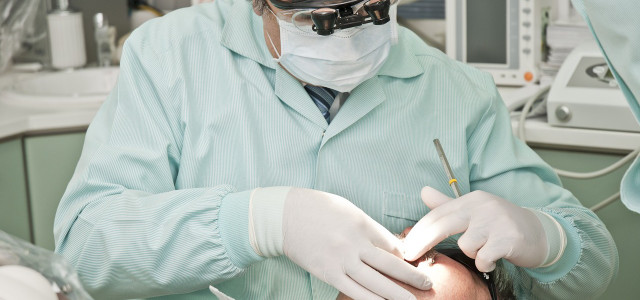
Having our wisdom teeth pulled is a procedure that we would rather avoid. However, in this article you will find out why it is sometimes essential to get rid of special teeth and what you should pay attention to during the operation.
Wisdom tooth surgery scares many of those affected and brings with it uncertainty. Wisdom teeth don’t always need to be extracted. In some cases, however, this may be absolutely necessary to avoid complications and undesirable consequences for the other teeth.
We will explain to you when wisdom teeth need to be extracted, what happens during the process and what you should consider before and after the operation.
What role do wisdom teeth play?
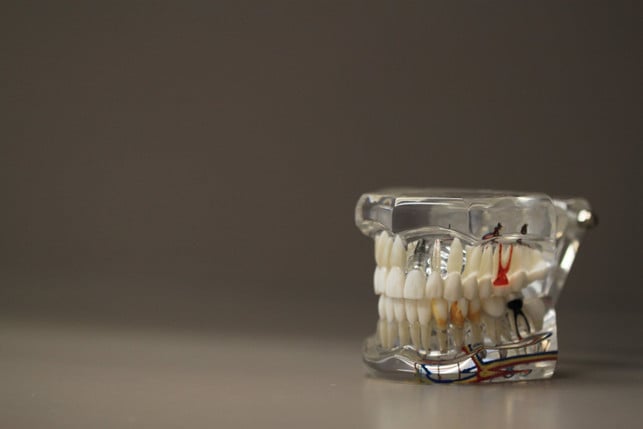
Wisdom teeth were particularly important for our ancestors because they had to chew solid food unprocessed. However, over time our teeth have changed. Today we mostly eat soft, cooked foods, so we no longer need particularly strong teeth.
The four wisdom teeth still held up. They are located at the back of the upper and lower rows of teeth on the right and left sides and are also referred to as “eights”. This is because they appear as the last and eighth teeth in each quarter of our teeth.
The problem: Over the course of evolution, our jaws have become smaller, so that our teeth are now often too small for our wisdom teeth.
Pulling wisdom teeth: why is it necessary?
Wisdom teeth often erupt after the age of 16, sometimes much later. Once the wisdom teeth have aligned in the oral cavity, tooth development is considered complete.
However, this is not the case for a large proportion of the population, where at least one wisdom tooth only partially erupts or remains completely hidden in the jaw. This can go completely unnoticed and painless for those affected.
However, some possible problems that may arise include:
-
Infections between the crown of the tooth and the bone
-
Accumulation of dirt on partially visible wisdom teeth
-
Caries formation on the wisdom tooth and neighboring teeth
- Formation of cysts
In addition, partially and completely erupted wisdom teeth can press against neighboring teeth, bones and skin. They cause severe pain and can displace neighboring teeth or, according to dentists, also promote inflammation. To prevent such complications, it is often necessary to extract wisdom teeth.
Wisdom teeth: when should I seek medical treatment?

If you have the following symptoms, you should see a doctor to see whether your wisdom teeth may need to be removed:
- Persistent toothache (pain or tender gums are completely normal while teeth are erupting. However, the pain should subside after a few weeks, otherwise it may indicate a complication)
- regular gum infections
-
Cysts form around the wisdom tooth
- you have problems properly brushing erupted wisdom teeth or neighboring teeth (for example, if the wisdom tooth is crooked)
- The wisdom tooth presses on neighboring teeth or bones
Are all wisdom teeth extracted at once?
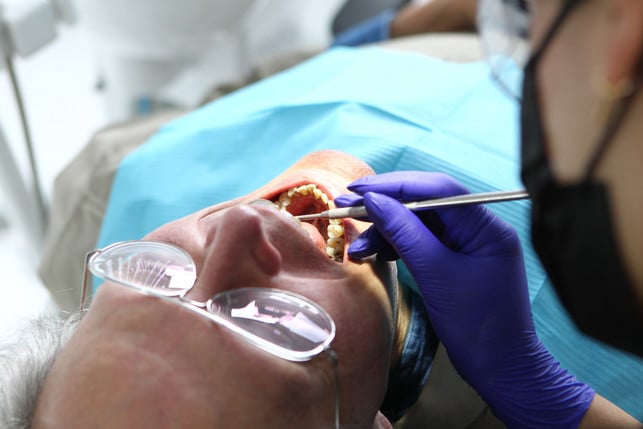
This is decided individually. Having all wisdom teeth extracted at once is the most common practice because patients are then only exposed to the whole thing once.
In some cases or at the request of those affected, the teeth can be extracted at several different appointments. First, both teeth on one side are extracted and at the next appointment the wisdom teeth on the other side. With this method you have less pain, but overall healing takes about twice as long because you have to go through the process twice.
Reading tip: Can you build up tooth enamel? Tips for healthy teeth
Pulling wisdom teeth: The right time
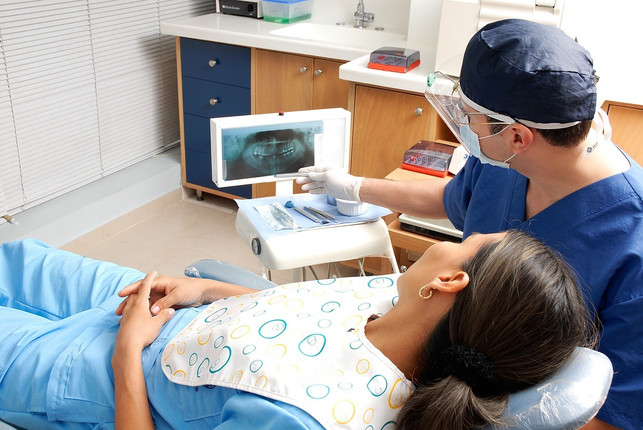
Whether and when you should have a wisdom tooth pulled depends entirely on your individual situation. It is therefore best to seek advice from dentists and, if in doubt, get several opinions. However, if the wisdom tooth causes long-term pain, removing it is unavoidable in most cases.
Having wisdom teeth pulled too late can have consequences: For example, they can damage neighboring teeth. If inflammation develops, in the worst case scenario, this can lead to a so-called blockage – that is, you can no longer open and close your mouth easily. This can be remedied by dentists.
Ideally, however, you would be better off avoiding the risk of a blockage by having your wisdom tooth pulled before it gets to that point. This way you can ensure long-term healthy teeth.
Pulling wisdom teeth: costs
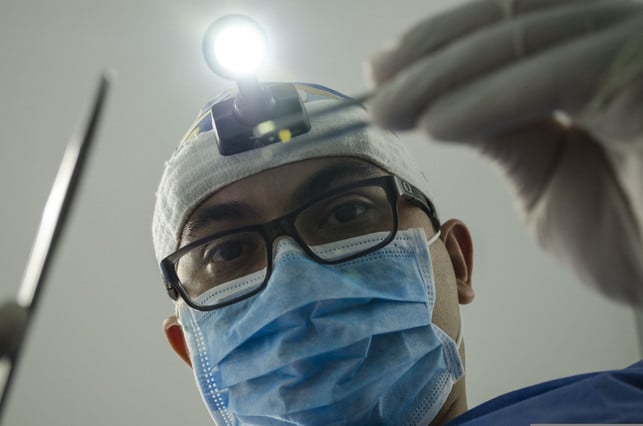
If dentists or oral surgeons confirm that it is medically necessary to extract one or more wisdom teeth, statutory health insurance companies will cover the costs. Local anesthesia is also usually covered by health insurance. You only have to cover the costs yourself if you insist on general anesthesia but it is not actually medically necessary.
If you have private insurance, you should ask your health insurance company about the applicable regulations and tariffs.
After surgery: Relieve swelling and pain
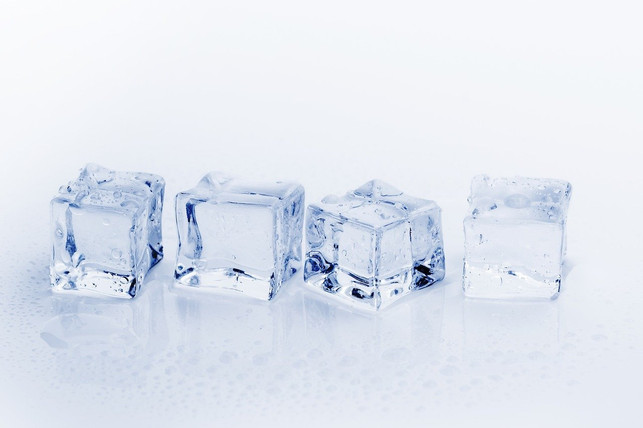
Not only dentists can extract wisdom teeth. Maxillofacial and oral surgeons can also carry out the procedure. In any case, the affected jaw is first anesthetized so that you do not feel any pain during the operation. If you wish, you can also have general anesthesia performed. This makes sense, for example, if the operation is somewhat more complex and time-consuming.
You can go home a few hours after the operation. Some patients may experience mild to severe swelling in the following days, which is often associated with pain. To relieve swelling and speed up wound healing, you should follow a few tips immediately after the operation and in the following days:
-
Cool the swelling inside and out. To do this, you can hold a cold compress or a washcloth on the outside of your jaw. You should not place ice packs directly on your cheek, but wrap them in a cloth first. You can suck ice cubes for internal cooling.
- Make sure you drink enough fluids. The best way to do this is to use still water or cold herbal teas such as chamomile tea.
-
Do not rinse your mouth for the first two days. This can cause bleeding. In the following days you can rinse with water every now and then. Definitely not too often. This inhibits natural wound healing. Under no circumstances should you use solutions or mouthwashes! This further irritates the wound.
- If your dentist had to pull wisdom teeth from your upper jaw, you should avoid blowing your nose and suppress your sneezing in the first few days after the operation. Both could otherwise cause secondary bleeding.
- Avoid caffeine and fermented teas for the first three days after surgery. Both increase blood pressure and can therefore promote secondary bleeding.
-
Under no circumstances smoke! Smoking not only inhibits wound healing, but can also promote inflammation.
-
Avoid physical stress caused by high temperatures. Sauna sessions, sunbathing or a hot bath are not recommended in the first few days after the operation.
- Give your body time and rest to regenerate! Therefore, avoid sports and other strenuous activities for the next two weeks. Prolonged talking and chewing are also counterproductive and delay wound healing.
Note: Heavy bleeding should usually stop shortly after the operation. In the following two days it may bleed slightly from time to time. If the bleeding lasts longer or becomes heavier, you should visit a dentist again. This also applies if the pain does not subside in the following week or two. After about seven days, your pain should have subsided significantly.
Diet after surgery

You should not eat anything for a few hours immediately after the operation. Afterwards, it’s best to resort to soft and liquid meals, such as (cooled) soups, vegetable and oat porridge or applesauce. You can find recipe ideas here, for example:
- Baby porridge recipes: Make your own porridge with grains, fruit and vegetables
- Vegan soups: 4 delicious recipes and inspiration
- Make your own mashed potatoes: A quick and easy recipe – with a vegan version
- Salad smoothie with lamb’s lettuce: recipe for the green drink
Pulling wisdom teeth puts a strain on the body. For optimal wound healing, some dentists recommend foods that are particularly rich in proteins and vitamin A. For example, you should include potatoes, green vegetables, carrots, sweet potatoes and eggs in your diet.
Foods you should avoid post-surgery include:
- dairy products
- Whole grain products
-
Nuts and seeds
- Dried fruits, cherries and berries
-
Spices and herbs
- drinks containing caffeine (such as coffee or energy drinks)
- alcohol
You should avoid whole grain products, berries, etc. because crumbs, seeds and other small parts can accumulate in the wound and lead to inflammation.
Edited by Jennifer Watzek
Read more on Techzle\.com:
- Caring for teeth with coconut oil: does it make sense?
- Activated charcoal for teeth: Why it’s not a good idea
- These 7 medicinal plants are natural painkillers and antibiotics
** marked with ** or orange underlined Links to sources of supply are partly partner links: If you buy here, you are actively supporting Techzle\.com, because we then receive a small part of the sales proceeds. More info.